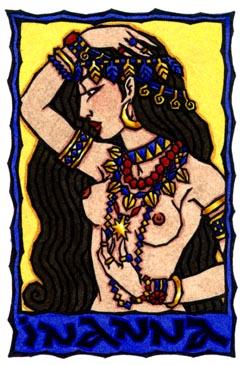 Esther Forbes (1928). A Mirror for Witches. (Academy Chicago Publishers, 2006, 1985).
Esther Forbes (1928). A Mirror for Witches. (Academy Chicago Publishers, 2006, 1985). In a town near Salem, in the years before the famous witch trials, there lived a girl called Doll Bilby. She was born in Celtic Brittany, where her parents burned as witches before her eyes. Rescued by an English sea captain, whose wife could bear no children despite being a devout and Godly woman, the dark-haired, wild-eyed Doll - so called because she was small - came to settle with her foster parents in Massachusetts Bay Colony.
This is the setting for Esther Forbes's relentless, haunting novel of a young girl, a perpetual outsider, who falls victim to the hysteria of her times. The story is told in the authoritative voice of an "objective observer" after the fact, a Malleus Maleficarum for one girl. The unidentified narrator recalls events in Doll's life through the lense of her eventual accusation of witchcraft: the child was a demon from the start, and her every action proved this. The clever thing about Forbes's book is the way she affects the narrator's voice while at the same time slyly revealing the narrator's bias. The reader sees a young girl caught up in cruel circumstances and coming to believe herself that she is evil. Doll Bilby has her allies - her foster father, who dotes on her, a progressive divinity student, who advocates for her, and a poor herbalist, who teaches her. But even these allies cannot stem the tide of misogyny, puritanism, and sexual fear that is Doll's undoing.
A Mirror for Witches, recently reprinted by Academy Chicago Publishers in a facsimile edition of the 1928 original, complete with woodcuts by Robert Gibbings, is an exciting and creepy read. It's definitely not for children, despite the author's being best known for her award-winning children's book, Johnny Tremain. For anyone interested in the Salem witch trials, this book is a gem.
I have little interest in the Salem witch trials and surrounding hysteria, however, which means I wouldn't have picked up the book had a review copy not been sent to me by the publisher. Still, I had a good time reading it. The bit about the poor herbalist, a wise woman both scorned for her congress with Indians and sought after for her healing skills, is a nice if romanticized touch for the modern Witch. Doll is a lover of nature and animals, and in that way she may also resemble (or not) those of us who call ourselves witches today. But the connection between Witches today and the women and men accused at Salem, or those who fell victim to the Inquisition in Europe, is a connection that we moderns have forged. What they meant by witch and what we mean by Witch aren't the same. At least, I haven't consorted with demons of late. (Beware, however: demons can come disguised as clergymen or pirates.)




1 comment:
Sounds like a facinating read.
Thank you for your review
Blessings
Mama Kelly
Post a Comment